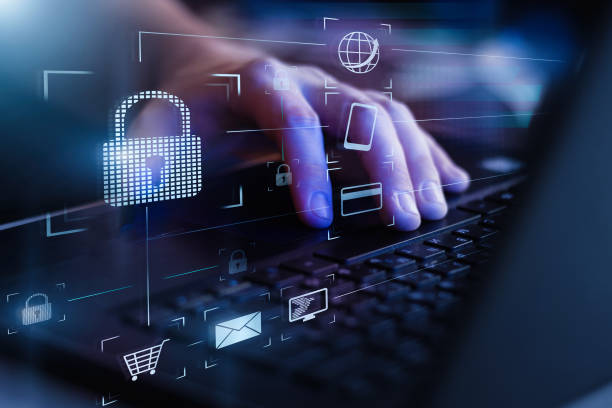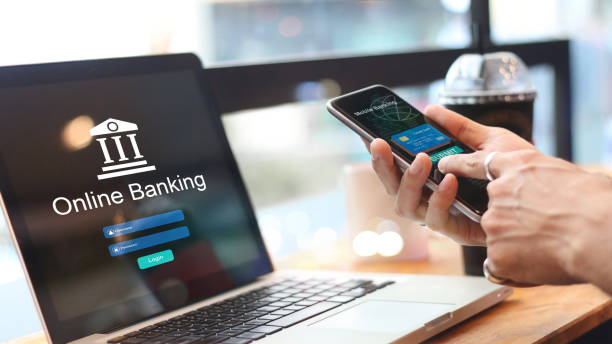Online banking is the future because it is fast, convenient, and allows you to access your bank account via your mobile or laptop anytime, anywhere. As we move into the implementation of online banking, you will need to keep a few things in mind to ensure your banking transactions are secure.
1. Weakest link
Fraudsters are adept at exploiting vulnerabilities. Most often, they take advantage of human error to deceive and scam. The point here is that negligence is what will make you more vulnerable.
Managing your money is a serious matter, so avoid distractions while using your account and think carefully before clicking on an email or message related to your bank account. Evolving technology does not go hand in hand with human error, so you must educate yourself on the do’s and don’ts of safe online banking banking.
2. Never reveal your password

Your bank will never ask you for sensitive information such as your account or card number, your online or mobile banking password, PIN, TIN, or CCV. One-time password (OTP), or answers to your security questions. If any strange caller asks for this information or to disclose your identity details, end the call immediately and inform the authorities of the number through which you were contacted.
3. Use the two-step authentication feature
The two-stage authentication feature provides double protection because it does not rely only on the password or passcode to verify the validity of the transaction, but rather will use the two-stage authentication mechanism like the mechanism that the feature does. “Smart Pass” from your bank, which uses a single device security level to create a new six-digit unique code valid for 60 seconds whenever you want to complete an online or mobile transaction.
The “Smart Pass” feature, which replaced the process of sending a one-time password (OTP) via SMS, does not require an Internet connection and can be activated on only one mobile device or tablet through the banking application.
4. Avoid using public Wi-Fi networks
Connecting to a public Wi-Fi network to access your bank accounts may expose you to electronic hacking. Never save your login information or password, as the next user can easily access your private accounts and information. Instead, use a secure home Internet or phone network that uses a password to connect to it.
5. Set transaction execution alerts via SMS
Check your account regularly and review your transaction history to detect any strange activity. Most banks offer the feature of receiving free banking transaction notifications via SMS, and thus you will receive immediate notifications if transactions are completed using your credit card or debit card from your account without your knowledge.
6. Do not click on links included in emails
Scammers are experts at making phishing emails look like they’re coming from your bank. Never click on links sent in emails that appear to be from your bank. Think carefully before clicking on a link, even if the email claims it will help verify your account or alert you to fraudulent activity.
Always choose to access your bank by typing the full address of the bank into your browser. Pin or bookmark the address for future use so you don’t get tricked into entering your login credentials into a fraudulent website.
7. Use strong passwords
A strong password contains a mixture of upper and lower case letters, numbers, and special symbols, ideally 12 characters long and, if possible, a string of letters that do not form any meaningful word. Also, avoid easy-to-predict passwords. Avoid using the same password for all your email and bank accounts, as this will expose all your personal information in the event of a security breach.
FAQ’s
1. How can I guard against fraudulent online banking?
To guard against online banking fraud, first do not distract yourself during online financial transactions. Secondly, never dare to unquestioningly click on emails or messages that involve your bank account. Finally, you should learn safe banking practices. It is very dangerous to have your password stolen. So make a habit of not revealing your password, and do not take notice of what the criminals mean out of blind trust.
2. During a telephone call about my bank account, what kinds of information should I be particularly careful not to divulge?
Frankly, your bank will never ask you for your sensitive information, like account or card numbers, passwords, PINs, etc., nor your TIN, CCV, one-time password (OTP), or answers to security questions. If a caller asks for such information, hang up as soon as possible and inform authorities about the occurrence.
3. In what ways does two-step authentication improve online banking security?
An extra security measure like the “Smart Pass” feature adds an extra layer. It creates a six-digit code that is assigned to every online or mobile transaction, providing two-fold layers of security. Rather than one-time passwords (OTP) being sent via SMS, the new procedure can be started on any single mobile phone using the banking application.
4. Why should I not go onto public Wi-Fi networks to do online banking?
They are uncontrolled public networks that can be hacked by electronic means and put even the greatest security experts at risk. Always avoid going online to use your bank account through public Wi-Fi. Therefore, use a secure home local area network protected by a password or IP network rather than the Web.
5. By what means can I stay up-to-date on my banking business and spot criminality?
By SMS Alert Set up transaction execution alerts. If ever your card is used by someone else for a purchase, you shall receive an immediate SMS informing you of the transaction. Be vigilant about your account. Frequently review your account activity and your transactions. Report any suspected abnormal activity to your account manager immediately. For example, many banks provide SMS message notifications to inform users of the activities on and off their accounts.
6. So what should I do to keep myself from clicking on the links that appear in e-mails about my bank account?
One common trick used by scammers is to send phishing emails purporting to be from your bank. Do not click on such emails’ links, regardless of whether they claim to be verifying your account or reporting you to be reporting fraudulent activity. But do not type your access data into the bank website. Instead, input the bank’s complete address directly into your browser and log on there.

